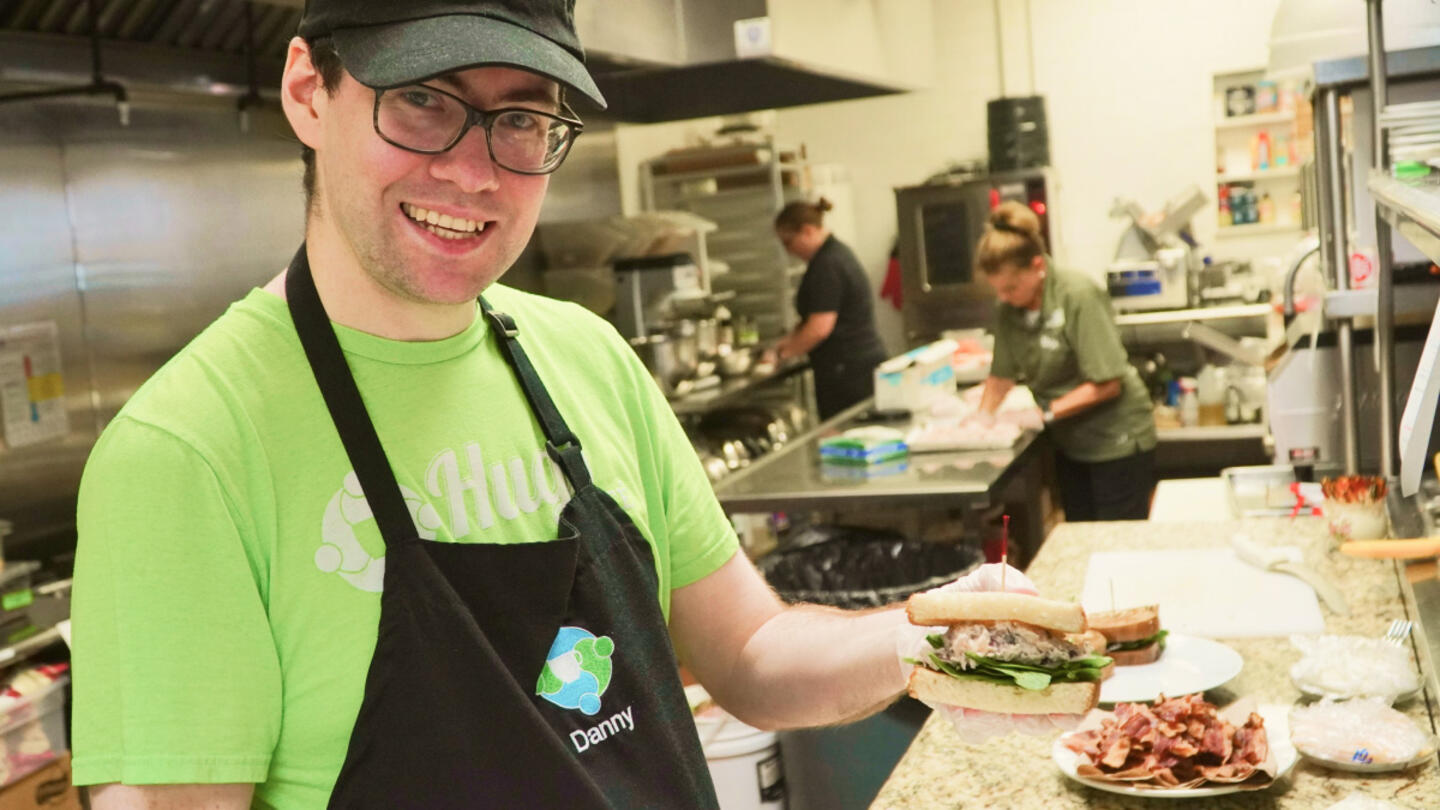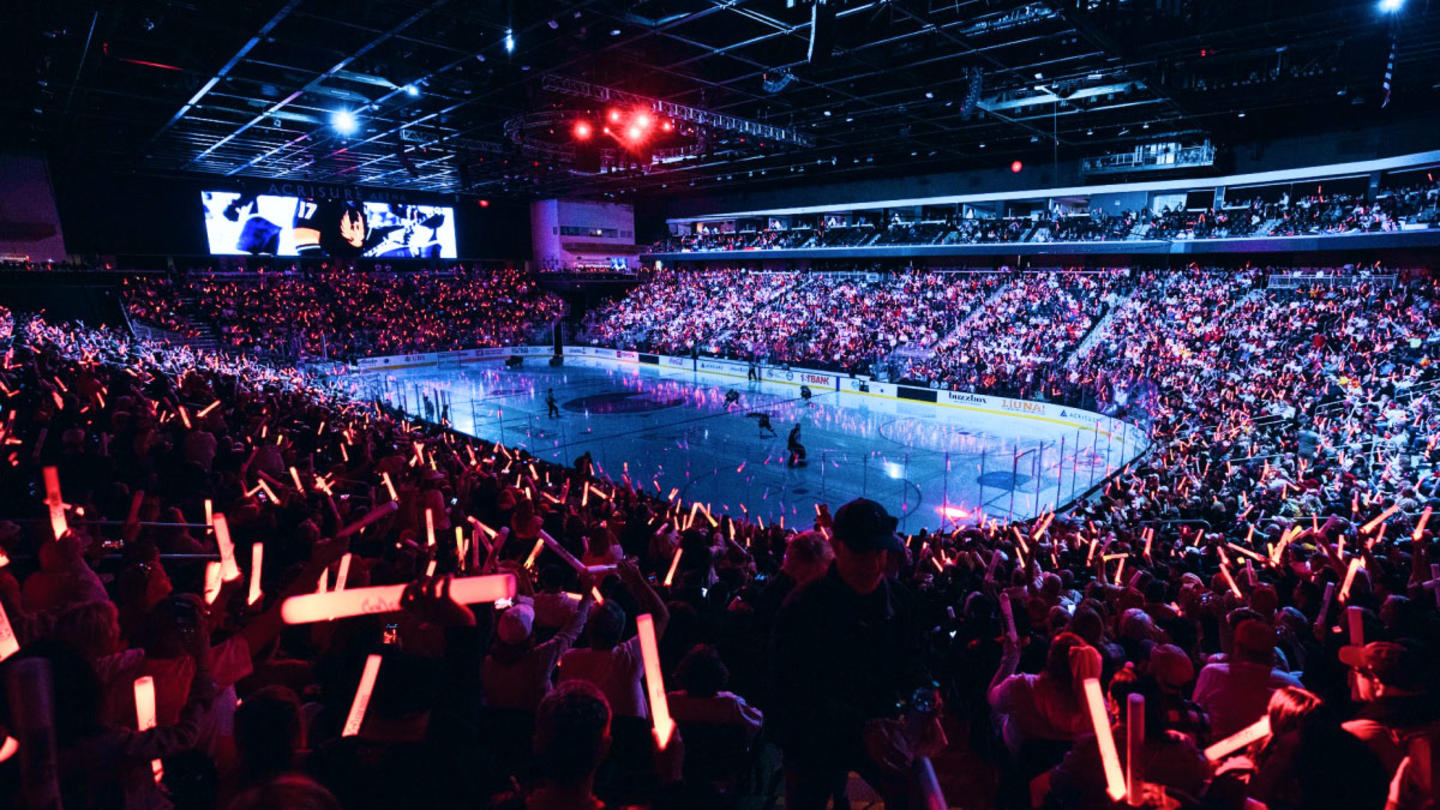When people picture the music industry, sobriety is usually the last thing that comes to mind. Bill Cheek wants to change that.
Cheek is the general manager of Hospitality at Acrisure Arena, a Coachella Valley California venue that hosts live entertainment events, from hockey to concerts. He is leading a team of hospitality professionals by ensuring the space includes sober-supportive options alongside traditional alcoholic options. He knows firsthand how impactful this can be.
“My parents were sober,” Cheek recalled. “I felt bad for them when we would go out because they wanted to be part of the party, and it was always difficult. Their choices were soda water, a Coke, or a virgin mixer — while everybody else was having martinis and cocktail concoctions and piña coladas and all that kind of stuff. And so, you feel like a misfit. At least, I empathize with them that they felt that way. I thought to myself, ‘There’s got to be a better way for people to be included and not be stigmatized if they choose not to drink.’”
Cheek is now determined to bring more people to the party. He hopes Acrisure Arena will be a model that encourages other large-scale venues nationally to consider becoming a part of the sober-supportive movement. The venue is working with 1 Million Strong, a partnership between The Phoenix and Stand Together Music to create sober-inclusive spaces, encourage open conversations about wellness and recovery, and offer support for those impacted by addiction. They’re working together to create sober-inclusive spaces at entertainment events and to make Acrisure Arena a welcome and exciting environment for drinkers and sober individuals alike.
The point has never been that everyone has to go sober. It’s about bigger, broader experiences that are inclusive in new ways. It’s about sober individuals feeling included. It has larger social and economic impacts too. This movement is encouraging non-sober individuals to be better advocates and to destigmatize sober choices as a lifestyle.
Acrisure Arena is just one example of how businesses can be key drivers supporting individuals on their journeys to overcoming addiction as well as those who choose sobriety for their own reasons. It could transform the entertainment and beverage industry altogether.
The business savvy behind non-alcoholic beverages
Besides being inclusive and welcoming for sober individuals, sober-supportive spaces just make good business sense.
Cheek points out that by focusing predominantly on alcoholic beverages, venues are excluding several types of consumers, be they pregnant women, people on certain medications, designated drivers, or people who simply don’t want to drink.
“Businesses should support this movement,” he said. “Every year it seems to grow more and more.” Although many hospitality vendors assume that alcohol is what drives profits, non-alcoholic drinks that are priced competitively can earn the same sales.
To show this, Acrisure Arena is including a series of vendors that are developing high-quality, multi-ingredient drinks on the same level as their alcoholic counterparts, without cutting into alcohol sales.
“Businesses should not use the profitability and revenue excuse to not have a program like this because it’s been proven that people will pay for a quality beverage even if it’s non-alcoholic,” Cheek said.
He highlighted the many different industries that can take part in the sober-supportive movement. In addition to the food and beverage industries, hotels, rideshare companies, and other businesses can provide services in support of designated drivers and those looking to abstain from alcohol during big events.
By exhibiting the dollars-and-cents advantage sober-inclusive spaces can bring, Cheek hopes Acrisure Arena will lead the way in a movement that harnesses the reach and power of national businesses. These far-reaching industries have the potential to make leaders and consumers more aware of sober lifestyles, helping to destigmatize addiction — one mocktail at a time.
Sign up for the Strong & Safe Communities newsletter for stories, ideas, and advice from changemakers working with their neighbors to address the biggest problems we face.
Creating community where all are welcome and comfortable
What works well as a business plan has valuable takeaways for communities, too. Those who choose sobriety don’t have to feel ostracized.
Cheek pointed out that although sobriety is often associated with addiction, people can choose to abstain from drinking for a variety of reasons. Making sober-inclusive environments more commonplace helps diminish the stigma associated with sobriety, and encourages people to be more welcoming and supportive for non-drinkers.
“You want everybody to enjoy the party,” said Cheek. “If there’s a group of four people and one is desiring a non-alcoholic cocktail, they don’t have to be the odd person out and get the not-so-exciting drink. They could be the designated driver for that group. They could be in recovery. But they [shouldn’t] feel alienated or stigmatized. A lot of times people in recovery, they’ll walk around with a ginger ale with a lime in it so people don’t think they’re not drinking, and it’s kind of their disguise.”
The hope is that as sober-supportive spaces become more common among entertainment venues, hotels, and restaurants, sober individuals won’t feel the need to don a disguise at all. The more communities are exposed to sober options, the more routine they’ll seem. This increases awareness and spreads acceptance for those who are choosing a sober lifestyle, particularly those in recovery from substance use disorder.
“I think what is lacking in a lot of people is empathy and understanding, especially for those with addiction or in recovery,” Cheek explained. Partakers “may not be as thoughtful as I was when I was with my parents and seeing them have to have that crappy non-alcoholic wine.”
He has seen how this approach strengthens communities overall. “In large communities where there’s a predominance of people in recovery or with addiction, it allows that community to integrate and to not be reclusive in their own little dens,” he said.
For instance, in Palm Springs and Las Vegas — two cities Cheek works in frequently — rates of alcoholism and recovery both tend to be relatively high, stemming at least in part from each city’s status as a nightlife hub. More sober-inclusive spaces can send a strong message about how these communities value and support their residents in recovery. “Having this option allows people to be comfortable in their own skin when they go out,” Cheek said. “I know people that are in recovery, and they refuse to go out because of the temptation. Everybody around them is drinking … Sober-inclusive spaces allow an option, so you feel like you’re part of something and not a misfit.”
From roots in the Coachella Valley, a national movement is taking hold
By partnering with 1 Million Strong, the goal is for Acrisure Arena to become a national — maybe even international — model for sober-inclusive entertainment spaces.
Cheek says his company, Oak View Group, plans to integrate sober-inclusive vendors in venues across the country. Eventually, the organization aims to spread to venues abroad as well.
“Palm Springs is a party place, right?” Cheek said. “People come here to have a good time. Acrisure Arena is a huge part of that. People make it a destination on a three-day weekend from LA to come see a show and enjoy the town. I would love to see this program carry into the community and infiltrate other arenas and stadiums.”
What is starting in Palm Springs is poised to spread nationwide, showcasing the potential of cities traditionally pigeonholed as party towns to become bigger, better, and more welcoming for all.
“I think if [non-sober individuals] can just put themselves in other people’s places, they’ll understand that this is really cool,” Cheek said. “It allows everyone to be part of the party.”
***
Acrisure Arena is supported by Stand Together, which partners with changemakers who are tackling the root causes of America’s biggest problems.
Learn more about Stand Together’s efforts to build strong and safe communities, and explore ways you can partner with us.

People with disabilities want meaningful work — and Hugs Cafe is making it happen.

At this ‘resort,’ children with intellectual disabilities are seen as gifts to be celebrated and loved.

Veterans experience loss when leaving service. Could this be key to understanding their mental health?

The Grammy-nominated artist is highlighting the stories we don’t get to hear every day.
